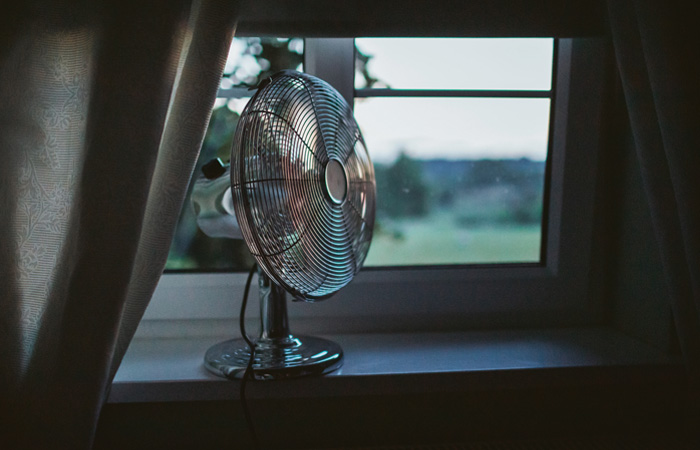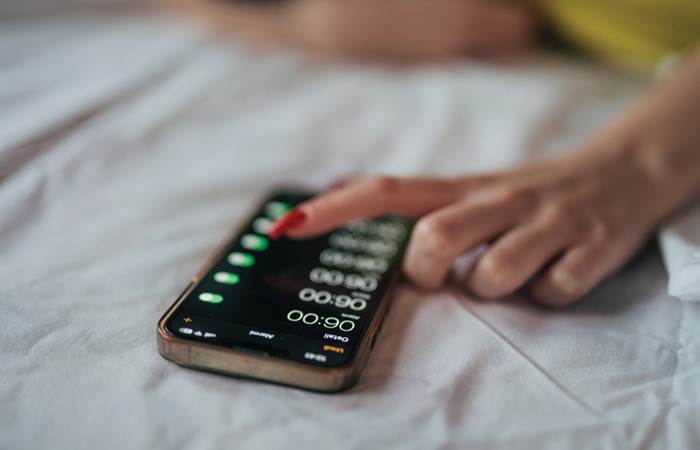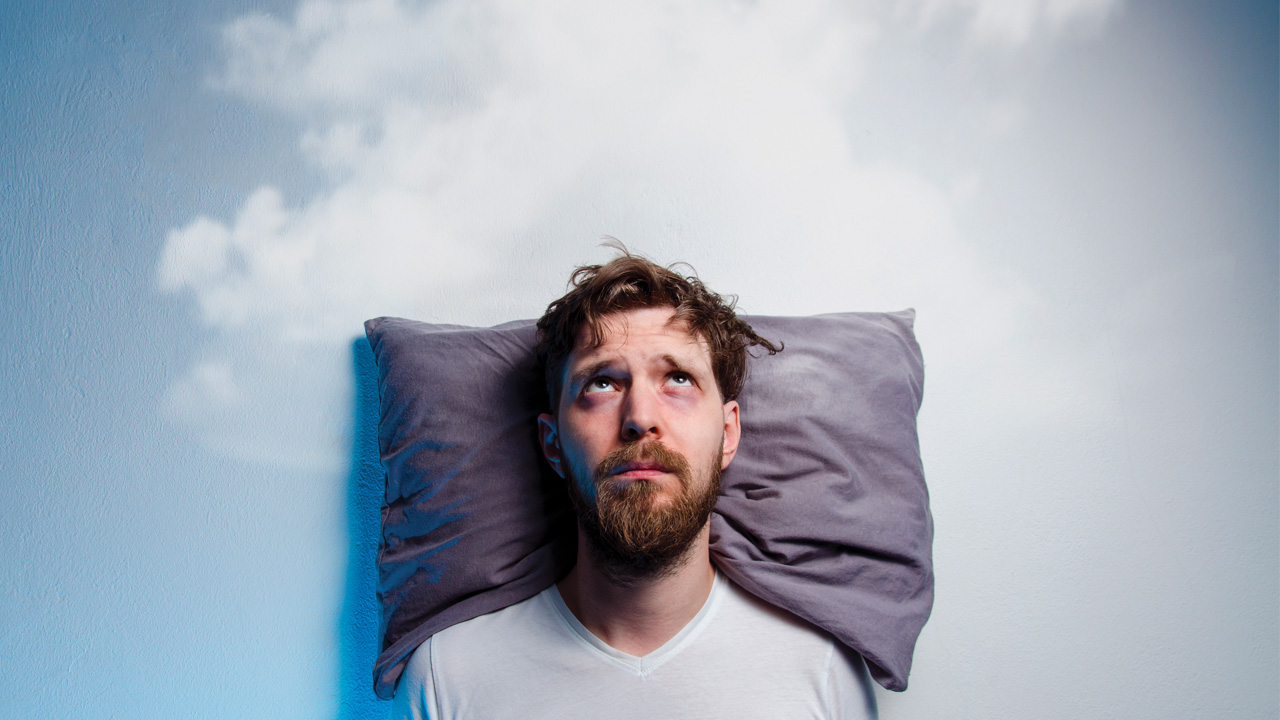In Conditions
Follow this topic
Bookmark
Record learning outcomes
While it is true that sleep is simply a part of the routine that we have known our whole lives, it is also true that sleep can be far from simple. Trouble sleeping can have ripple effects in almost every aspect of one’s life, from becoming irritable to reduced immunity. “Sleep is a cornerstone of physical and mental wellbeing, providing the body with time to restore, replenish and rejuvenate physiological processes,” says Adam Rathbone, lecturer in clinical and social pharmacy at Newcastle University. “It is important to recognise the bidirectional relationship between sleep and physical and mental wellbeing, in that poor sleep can lead to poor physical and mental wellbeing, but also poor physical and mental wellbeing can lead to poor sleep.” Customers who suffer from insomnia will be struggling to strike this balance, but luckily pharmacy teams can support them with advice and signposting.
Going in-depth into insomnia
“Insomnia is a medical diagnosis with specific diagnostic criteria, which means that many people who are sleeping poorly or feeling a bit jaded during the day, and thus consider that they are suffering from insomnia, strictly speaking are not,” says Alison Gardiner, founder and CEO at charity Sleepstation. “Insomnia is the complaint of repeatedly finding it difficult to fall asleep, failing to stay asleep, waking early, feeling that your sleeping is non-restorative/not refreshing or any combination of [these examples],” Alison continues. Finding it difficult to concentrate during the day, finding it hard to nap during the day even though you’re tired, or feeling irritable are also symptoms of insomnia. For insomnia to be diagnosed, a person needs to experience one or more of these sleep disturbances on most nights. There are three specific types of insomnia, which pharmacy teams should be aware of. Alison explains:
- Sleep-onset insomnia: where there is difficulty falling asleep. On average, most people without a sleep problem take less than 20 minutes to fall asleep. Regularly taking more than 30 minutes to fall asleep majority of the time may be considered a problem
- Sleep-maintenance insomnia: where someone wakes repeatedly during the night and finds it difficult to get back to sleep
- Early morning waking: where someone wakes earlier than desired and cannot fall back asleep.
If any of these are experienced for less than three months, it is called short-term insomnia. If these symptoms last three months or longer it is long-term insomnia. As far as causes go, each individual case is different. “A small number of people suffer from chronic insomnia for no discernible reason, however, for the majority of sufferers, their insomnia is associated with another problem,” Alison explains. “Some causes you can remedy yourself while others need to be addressed by a GP.” Causes of insomnia include:
- Physical medical conditions, like chronic pain, the menopause, an overactive thyroid, restless legs syndrome, joint or muscle problems and heart disease
- Mental health issues like stress, anxiety and depression
- Medications (antidepressants, some epilepsy medicines, hormone treatments, etc.)
- Lifestyle/environmental problems. For example, the bedroom being too hot, bright or noisy, drinking caffeine before bed, or staying up late watching TV.
In these cases, treating the primary condition should lead to improved sleep. “However, some treatments may have side effects that could actually make your sleep worse”, Alison says, making it imperative that customers mention their sleeping problems to their healthcare professional when seeking advice.
“Poor sleep can lead to poor physical and mental wellbeing, but also poor physical and mental wellbeing can lead to poor sleep”
Tips on sleep hygiene
Sleep hygiene can play a crucial role in improving quality of sleep. Lisa Artis, deputy CEO of The Sleep Charity, shared her sleep hygiene tips:
- Consistency: “Going to bed and waking up at the same time every day, even on weekends, helps regulate the body’s internal clock (the circadian rhythm). This consistency encourages deeper, more restful sleep”
- Relax: “Engaging in calming activities before bed, such as reading, taking a warm bath, or practicing relaxation techniques like meditation, signals to your brain that it’s time to wind down”
- Optimise your sleep environment: “Ensure your bedroom is conducive to sleep – dark, quiet, and cool. Consider blackout curtains, white noise machines, or earplugs if necessary. Additionally, investing in a comfortable mattress and pillows can make a world of difference"
- Limit screentime: “It’s less about the blue light emitted by electronic devices that interferes with melatonin production, and more that the devices are content-stimulating in the run up to bedtime. Where possible, try to avoid screens for at least an hour before bed”
- Avoid certain foods/drinks: Large meals, caffeine, and alcohol close to bedtime can negatively impact sleep
- Get regular exercise: “Physical activity during the day can promote better sleep at night. However, avoid vigorous exercise close to bedtime, as it may leave you too energised to fall asleep"
- Limit naps: "While naps can be helpful, long or late naps can interfere with nighttime sleep. If you need to nap, aim for no more than 20-30 minutes, and before 3pm."

It may be useful for those experiencing the menopause to install a fan in their bedroom, to combat symptoms such as hot fl ushes that may disrupt sleep.
Sleep and stress
Sleep and stress often go hand in hand. If someone is feeling stressed, their sleep may be impacted, and likewise, if someone sleeps badly, they are more likely to feel stressed. “The knock-on effects of stress can have a vast impact on our mental and physical wellbeing, and in particular our quality of sleep, by disrupting the balance of hormones released,” elaborates Elizabeth Hughes-Gapper, Kalms senior product manager at Lanes Health. “As we continue to accrue a sleep defi cit – the cumulative e ect of not getting enough sleep – our ability to concentrate worsens, mood drops and productivity decreases, all of which can emphasise feelings of stress.”
Pharmacy teams can support customers with their sleep-stress cycle issues “by talking to them and finding out more about their cause of stress or sleeplessness,” Elizabeth says. “Together, you can address any unhealthy habits that trigger stress or sleeplessness.” For those looking for over-the-counter recommendations, there are a few options available. “Valerian is a popular choice that has long been used to promote relaxation,” Elizabeth says. “It is believed to work by increasing brain levels of the neurotransmitter GABA. By increasing levels of this calming chemical, valerian helps to ease stress and promote a restful night’s sleep without causing drowsiness the next day.” Elizabeth also suggests some helpful lifestyle changes to recommend to customers:
- Avoid unhealthy habits – try not to rely on alcohol, smoking and caffeine as ways of coping. Instead, try to maintain a healthy diet. What people eat can have a major impact on the way they feel
- Keep active – studies have shown that regular exercise and being active during the day can help people sleep better at night by relieving stress and anxiety
- Get outside during the day – exposing the body to natural light helps to keep the circadian rhythm in balance
- Create a personalised bedtime routine to help unwind. Try a warm bath or reading a book, practicing some mindfulness meditation, or listening to a relaxing podcast
- Switch off electrical devices an hour before bed – the bright lights before bed can stimulate us, interfering with a person’s circadian rhythm.
Pharmacy’s role in sleep
There are various sleep organisations encouraging the implementation of sleep services within pharmacies. The Early Intervention Community Sleep Support (EICSS) Report from Newcastle University and the British Society of Pharmacy Sleep Services (BSPSS), explores the potential role pharmacies can play in sleep services. “The findings suggest community pharmacies can feasibly provide sleep support services, leveraging their accessibility and trust within local populations,” says the report. However, it cites that “further work is needed to provide adequate training and resources” for pharmacies to “establish robust monitoring systems and improve collaboration” between multiple healthcare providers. Pharmacy teams can help customers struggling with sleep issues, including insomnia, in multiple ways. Firstly, they can be aware of the signs of insomnia/sleep issues, keeping in mind the impact of sleep on overall wellbeing whenever speaking with customers. “It’s a great question to ask someone who comes into the pharmacy looking for advice about their health and wellbeing,” says Adam. Finding out about a person’s lifestyle and sleep routine could indicate areas for improvement, and pharmacy teams can remind customers that a healthy lifestyle is linked to better sleep. “Many conditions contribute to poor sleep quality, so pharmacies could be supporting sleep by offering existing services, for example being overweight or obese is linked to sleep apnoea [when breathing stops and starts while asleep], so offering weight management services could be helping someone get a better night’s sleep,” Adam continues. “Additionally, the timing of medicines can also have an impact on sleep, so for pharmacy technicians and other support sta counselling patients about their medicines, avoiding stimulating medicines near bedtime could support sleep.” There are sleeping tablets that can be sold over-the-counter, but Adam recommends encouraging lifestyle changes or cognitive behavioural therapies before suggesting something OTC. Alison agrees, saying: “OTC sleep aids like antihistamines have a short-term benefit, but research shows that their e ects on sleep diminish after just three to four days, and so while they may be benefi cial in the short-term, they are unlikely to be helpful in more chronic sleep problems.”
The EICSS Report can be found at: bspss.org/serviceeval/ early-intervention-community-sleep-support-next-steps/ and is a useful resource for pharmacy teams. Other helpful resources include:
- The British Society of Pharmacy Sleep Services: bspss.org
- The Sleep Charity: thesleepcharity.org.uk
- The Sleep Foundation: sleepfoundation.org
- The NHS: nhs.uk/every-mind-matters/mental-health-issues/sleep.

Setting multiple alarms or pressing snooze leads to fragmented sleep, which leads to feeling more tired and groggy throughout the day.
The impacts of sleep deprivation
It’s recommended that adults up to the age of 64 have seven to nine hours of sleep per night, yet almost one in five people in the UK aren’t getting enough sleep, according to research from Mental Health UK. The consequences of sleep deprivation can be as far reaching as creating long-term health issues. In the shortterm, sleep deprivation can lead to irritability, mood swings, a tendency to feel more anxious and even symptoms of depression. “In fact, chronic sleep deprivation is often linked with mental health disorders, creating a vicious cycle of poor sleep and worsening emotional health,” says Lisa. Other short-term impacts include impaired concentration, decision making and problem-solving skills. Long-term physical impacts include heart disease, obesity, diabetes, and weakened immunity. “The body needs suffcient sleep to regulate hormones that control hunger and stress, among other critical functions,” Lisa explains. Lastly, she notes the increased risk of accidents associated with sleep deprivation. “Sleep deprivation is one of the leading causes of accidents, whether on the road or at work. Fatigue slows reaction times and reduces alertness, making accidents more likely to occur."
“The body needs sufficient sleep to regulate hormones that control hunger and stress, among other critical functions”
Restless legs syndrome
There are other conditions specifically related to sleep which cause problems for people at night. Restless legs syndrome (RLS) is one of these. RLS is a condition of the nervous system that causes an overwhelming and irresistible urge to move the legs – the main symptom – leading to sufferers being unable to fall asleep at night. It can also cause an unpleasant crawling or creeping sensation in the feet, calves and thighs. The exact cause of RLS is often unknown, but it can run in families. It is otherwise linked to an underlying health condition – as a complication of another health condition, or the result of another health-related factor. If this is the case, it is classified as secondary restless legs syndrome. Secondary RLS can develop in people with:
- Iron deficiency anaemia (low levels of iron in the blood can lead to a fall in dopamine, triggering restless legs syndrome)
- Chronic kidney disease
- Diabetes
- Rheumatoid arthritis
- An underactive thyroid
- Parkinson’s disease
- Fibromyalgia
- Those who are pregnant (particularly from week 27 until birth; in most cases symptoms disappear within four weeks of giving birth).
It would be useful for pharmacy teams to be aware of the triggers of RLS, which do not cause the condition, but can make symptoms worse. They are:
- Medications like antidepressants, antihistamines, some antipsychotics and lithium
- Excessive caffeine or alcohol
- Smoking
- Being overweight or obsess
- Stress.
This is where pharmacy teams can recommend relevant lifestyle changes to ease symptoms. Where customers do frequently experience episodes of RLS, they can try massaging the legs, taking a hot bath in the evening, applying a hot compress to the legs, doing activities to distract their mind like reading, relaxation exercises like yoga or tai chi, and walking and stretching. If RLS is badly disrupting their sleep, a short-term course of medicine known as hypnotics – which include zopiclone and zolpidem – may be recommended to help. However, these are only for short-term use and are not a long-term solution. Mild painkillers can be recommended if customers are experiencing pain associated with their RLS. Customers who report back that none of these interventions are helping, should make an appointment to see their GP to test for underlying issues.
Sleep on stage
Another way that customers can tackle their sleep problems is by developing an understanding of the different stagesand phases of sleep. Few people are aware of sleep stages, yet they have a signifi cant impact on the quality of sleep one is getting. “Sleep is a complex process, and each stage plays a critical role in restoring the body and mind,” says Lisa. “When people understand these stages, they’re better equipped to make informed choices that support restful, restorative sleep.” Sleep is divided broadly into two categories, the first being non-rapid eye movement (non- REM) sleep. This category then consists of three stages, each serving a unique function, which Lisa explains:
- Stage 1 (light sleep): “This is the initial phase of sleep, where the body starts to relax, heart rate slows down, and brainwave activity shifts into a more peaceful rhythm. This stage is essential for transitioning into deeper sleep”
- Stage 2 (deeper light sleep): “Here, the body temperature drops, and heart rate slows further. It’s in this stage that we spend most of our sleep time, and prepares us for Stage 3 sleep”
- Stage 3 (deep sleep or slow-wave sleep): “This is the most restorative phase of sleep, critical for physical healing, immune system function, and energy restoration. Deep sleep is also important for emotional regulation and overall mood.”
The second sleep category is rapid eye movement (REM) sleep. “This is when most dreaming occurs, and it’s vital for cognitive functions, like problem-solving and emotional health,” Lisa says. “Understanding these stages allows people to recognise the importance of each part of the sleep cycle. For example, waking up during deep sleep often leads to grogginess (sleep inertia), whereas waking during lighter sleep stages tends to feel more natural. By improving their sleep habits, individuals can increase their chances of experiencing uninterrupted sleep cycles, leading to more restorative rest.”

Using electronic devices right up until bedtime has been shown to make it harder to fall asleep.
Sleep apnoea
Sleep apnoea is when one’s breathing stops and starts while asleep and, if left untreated, can lead to other more serious problems. The most common type is obstructive sleep apnoea (OSA). Symptoms include breathing stopping and starting; making gasping, snorting or choking noises; waking up a lot; and loud snoring. As these symptoms occur during sleep, it can be hard for people to identify their symptoms. Pharmacy teams can suggest that they ask someone to stay with them while they sleep to check the symptoms. If customers suspect that they have sleep apnoea, they should visit their GP, who will often refer them to a specialist sleep clinic for tests. Sleep specialists have devices which test for sleep apnoea while one is sleeping. Customers may be given one of these to take home, or sometimes, they may need to stay overnight in a clinic. The devices tests how often breathing stops while sleep occurs, indicating the presence and/or severity of sleep apnoea.
Again, sleep apnoea can be related to lifestyle habits. Pharmacy teams can suggest that customers try to lose weight if a person is overweight, exercise regularly, develop good sleep habits like waking up and going to bed at the same time each day and sleep on their side. This may be all a customer needs to do if their sleep apnoea is mild. However, is their condition is more severe, they may be given a CPAP machine (available on the NHS) which gently pumps air into a mask worn over the mouth and nose during sleep. This may feel strange at first, but encourage customers to continue with the device, which is shown to improve the quality of sleep and reduces the risk of problems linked to sleep apnoea, like high blood pressure. Other treatments include a gum shield-like device that holds one’s airway open while sleeping, and, in some cases, surgery to remove large tonsils to help with breathing.

